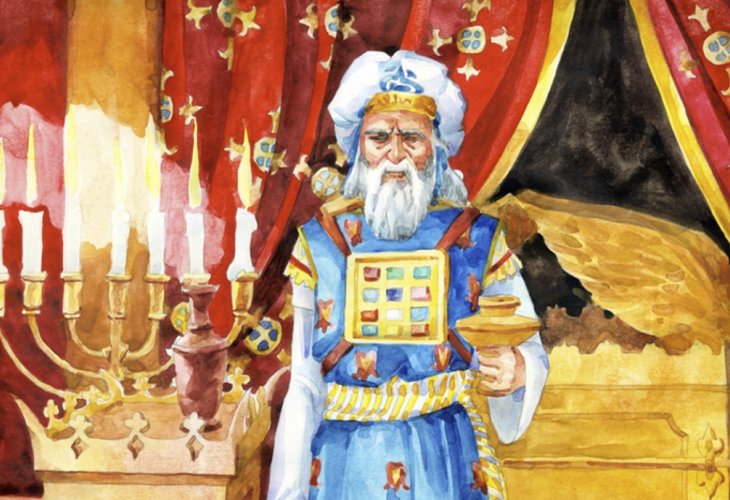Torah Personalities
Nadav and Avihu: Sacred Fire and a Tragic Fall
Sons of Aharon and priests of the Mishkan, their mysterious death reveals the weight of holiness and the cost of acting without command
 Aaron the Priest (Illustration: shutterstock)
Aaron the Priest (Illustration: shutterstock)The Day the Fire Came Down
Nadav and Avihu were the sons of Aharon HaKohen, the first High Priest of Israel. Alongside their brothers Elazar and Itamar, they were inaugurated into the priesthood during the dedication of the Mishkan (Tabernacle).
On the eighth day, the climax of the seven-day inauguration period, the Divine Presence filled the Mishkan. The people witnessed a miraculous fire consuming the offering on the altar: "And the glory of Hashem appeared to all the people. Fire came forth from before Hashem and consumed the burnt offering… and all the people saw, and sang out, and fell on their faces” (Vayikra 9:23–24).
But that day would also become a day of national mourning.
A Forbidden Fire
Immediately after this awe-inspiring moment, Nadav and Avihu brought an unauthorized offering. Without consulting Moshe or following the Divine command, they entered the holy space and offered ketoret (incense) using “foreign fire”: "Each took his firepan… and they offered before Hashem a strange fire which He had not commanded them. And fire went forth from before Hashem and consumed them, and they died before Hashem” (Vaykira 10:1–2).
Their intention may have been spiritual, but in the realm of Temple service, intention is not enough. The service must be done precisely as Hashem commands.
Twelve Reasons for Divine Judgment
The Midrash lists twelve reasons why Nadav and Avihu were punished so severely (Vayikra Rabbah 20:6 and onward):
They gazed upon the Divine Presence at Mount Sinai.
They offered a sacrifice not commanded.
They used unauthorized fire.
They entered the Mishkan without permission.
They acted without consulting one another.
They ruled on halacha (Jewish law) in front of Moshe, their teacher, a capital offense.
They refused to marry and have children.
They harbored thoughts of succeeding Moshe and Aharon.
They did not wear the priestly garments.
They did not wash their hands and feet before service.
They entered the sanctuary while intoxicated.
They performed a service reserved only for a married Kohen (priest) with children.
Despite their status as holy individuals, their actions reflected a lack of humility and submission to Divine order, an especially grave misstep in the sacred space of the Mishkan.
The Fire Within
Hashem holds the righteous to the highest standards. Nadav and Avihu were great spiritual figures, and their punishment came not from human courts, but from Heaven. According to Rashi, a thread of fire entered their nostrils and consumed them from within, leaving their garments untouched.
"It teaches that their clothes were not burned, only their souls, like two threads of fire that entered through their nostrils” (Rashi on Vaykira 10:5).
Aharon responded with silence: “And Aharon was silent” (Vayikra 10:3). His dignified restraint in the face of unimaginable grief became a model of faith and spiritual surrender. The people of Israel mourned deeply for the two brothers: "Your brethren, all the house of Israel, shall weep over the burning that Hashem has kindled” (Vayikra 10:6).

